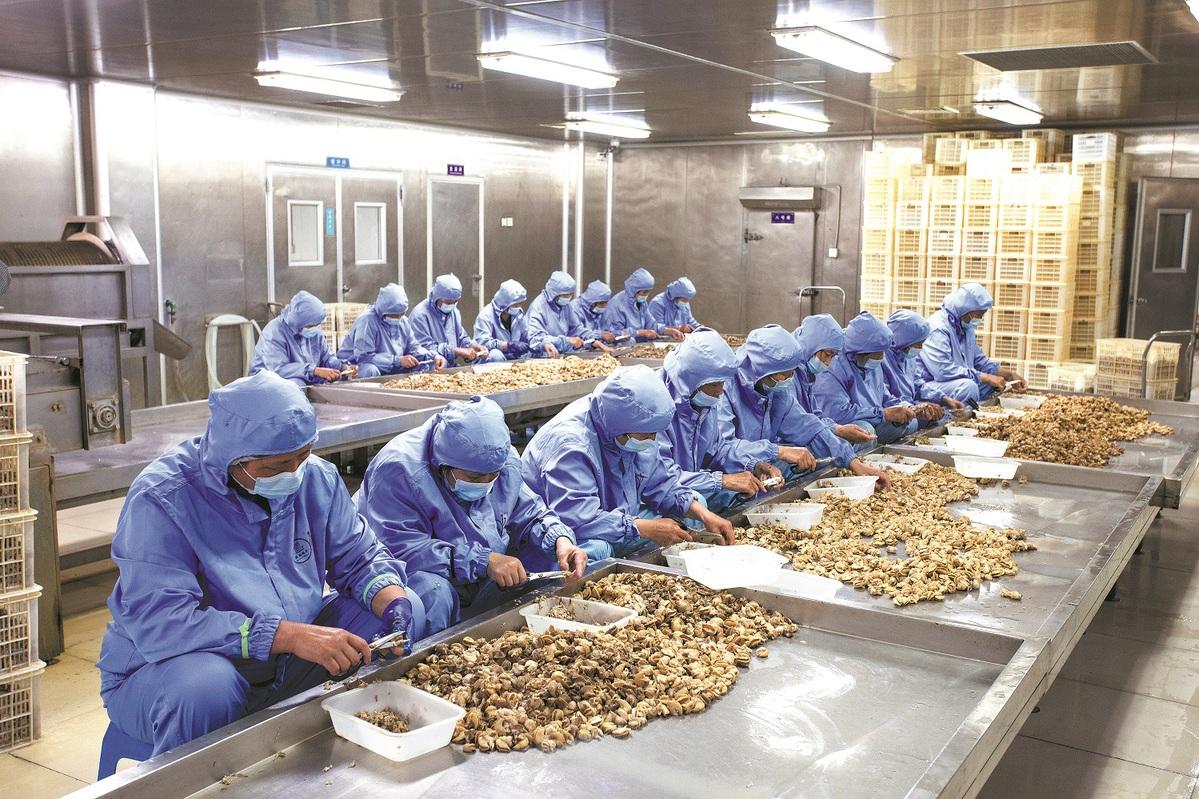
Breeding industry plays positive part in rural vitalization
Xu Qinsen and his wife used an iron spade to place lime into piles of soil in their yard, each end of which is enclosed by wooden frames.
"We do this to give our snails enough calcium to grow," said Xu, who comes from Zhejiang province.
In the two snail breeding rooms at Xu's yard in Puguang village, Yuxin town, Jiaxing city, rows of wooden boxes are neatly placed in the shade. The rooms are kept at a constant temperature.
More than 100 white jade snails, the meat of which is similar in appearance to the precious stone, can be seen as Xu removes the lid of one box.
"For the past 15 years, these little creatures have changed my life," said Xu, who before 2008 did a range of part-time handiwork jobs, earning barely enough to support his family.
Then, he discovered that many locals were breeding snails, and made inquiries to obtain further details.
Xu discovered that Jiaxing Qianfu Food Co, a rural cooperative based in Daqiao town, about a 20-minute drive from his home, was offering snail breeding training and purchase deals.
The growth cycle of snails is four to five months, and there are about three rounds of breeding per year.
The market price for snails is 20 yuan ($2.79) per kilogram, and the company buys 15,000 kg of Xu's snails annually, which provides him and his family with an income of 250,000-300,000 yuan.
"This is several times as much as I earned from my part-time jobs," he said.
After Xu submitted an application to the company, he received free training for a year. As he became more familiar with his new work, he increased the breeding of snails at home, enabling the family to move into a new villa and buy cars.
The Xu family is among more than 500 rural households to prosper from the booming snail industry in Jiaxing, which Huang Yongxiao, Party secretary of Daqiao, said accounts for 70 percent of the nation's edible snail production.
These households are located not only in Zhejiang, but also in Anhui, Hebei, Jiangxi and Henan provinces.
Each household can increase its annual income by an average of 100,000 to 300,000 yuan, local authorities said.
"This is a big improvement compared with before, when rice cultivation was the main source of local income," Huang said.